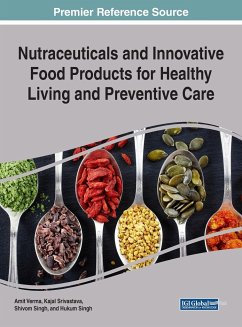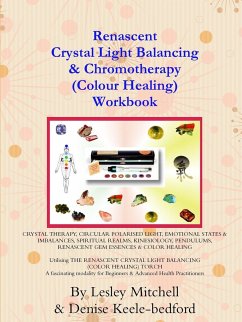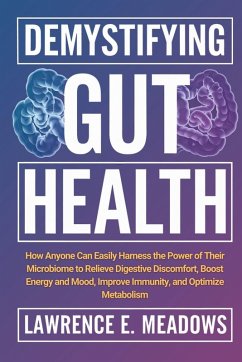
Balancing Nutrients for Vibrant Health
Versandkostenfrei!
Versandfertig in über 4 Wochen
21,99 €
inkl. MwSt.

PAYBACK Punkte
11 °P sammeln!
Balancing nutrients for vibrant health is a fundamental aspect of maintaining a healthy and energetic lifestyle. Proper nutrition is essential for the body to function optimally and to prevent various health issues. Balancing nutrients involves ensuring that you get the right proportions of macronutrients (carbohydrates, proteins, and fats) and micronutrients (vitamins and minerals) to support your overall well-being. Here's a description of the key elements involved in balancing nutrients for vibrant health: Macronutrients:Carbohydrates: These are the body's primary source of energy. Whole gr...
Balancing nutrients for vibrant health is a fundamental aspect of maintaining a healthy and energetic lifestyle. Proper nutrition is essential for the body to function optimally and to prevent various health issues. Balancing nutrients involves ensuring that you get the right proportions of macronutrients (carbohydrates, proteins, and fats) and micronutrients (vitamins and minerals) to support your overall well-being. Here's a description of the key elements involved in balancing nutrients for vibrant health: Macronutrients:Carbohydrates: These are the body's primary source of energy. Whole grains, fruits, vegetables, and legumes are excellent sources of complex carbohydrates, which provide sustained energy and fiber for digestive health.Proteins: Proteins are essential for building and repairing tissues, producing enzymes and hormones, and supporting the immune system. Sources include lean meats, poultry, fish, dairy, eggs, and plant-based options like beans, lentils, and tofu.Fats: Healthy fats are crucial for brain function, cell structure, and overall health. Sources of healthy fats include avocados, nuts, seeds, olive oil, and fatty fish like salmon. Limit saturated and trans fats found in fried and processed foods. Micronutrients:Vitamins: A well-balanced diet should include a variety of vitamins, such as vitamin A for vision, vitamin C for immune support, and B vitamins for energy metabolism. Fruits, vegetables, and whole grains are rich sources of vitamins.Minerals: Essential minerals like calcium, magnesium, and potassium are important for bone health, muscle function, and maintaining electrolyte balance. Dairy products, leafy greens, and nuts are good sources of these minerals.Hydration:Staying hydrated is crucial for overall health. Water is essential for digestion, temperature regulation, and the transportation of nutrients throughout the body. Aim to drink an adequate amount of water daily, and adjust your intake based on your activity level and climate.Fiber: Dietary fiber is important for digestive health, helps control blood sugar levels, and supports weight management. Foods rich in fiber include whole grains, fruits, vegetables, and legumes.Antioxidants:Antioxidants help protect the body from free radical damage, which can contribute to aging and various diseases. Foods rich in antioxidants include colorful fruits and vegetables, green tea, and dark chocolate.Balanced Portions:Portion control is essential for maintaining a healthy weight and preventing overconsumption of calories. Be mindful of portion sizes to ensure you're not overeating.Individual Needs:Nutrient requirements vary from person to person based on factors like age, gender, activity level, and health goals. It's essential to tailor your nutrient intake to meet your specific needs.Balancing nutrients for vibrant health is not just about what you eat but also about how you eat. It's important to have a varied diet that includes a wide range of foods, practice moderation, and avoid excessive intake of processed and sugary foods. Consulting with a healthcare professional or registered dietitian can help you create a personalized nutrition plan that supports your individual health goals and needs














